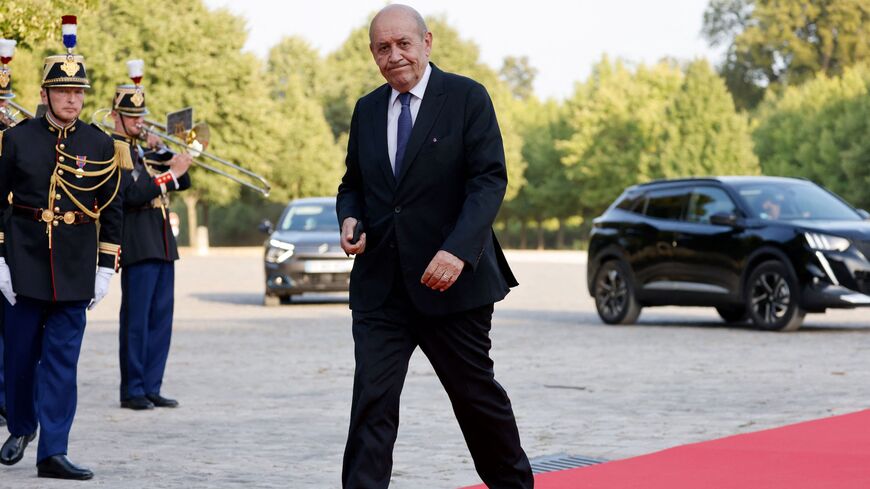BEIRUT — French President Emmanuel Macron's new special envoy for Lebanon Jean-Yves Le Drian arrived in Beirut on Wednesday, the state-run National News Agency reported.
According to the agency, the former foreign minister was received at the airport by French ambassador to Lebanon, Anne Grillo, and a number of embassy staff. He is scheduled to meet with Lebanese officials as part of France’s efforts to break the presidential impasse in the crisis-hit country.
Lebanon, a former French colony, has been without a head of state since former President Michel Aoun’s term ended last October. Since then, the heavily divided parliament has held 12 sessions that all ended in failure to elect a president.
In the most recent attempt to break the deadlock, the country’s largest Christian parties and opposition blocs nominated Jihad Azour, an International Monetary Fund official and former finance minister. In a parliament session held last Wednesday, Azour failed to garner the 65 votes needed to move to a second round. He is going up against Suleiman Frangieh, a close friend of Syrian President Bashar al-Assad and the candidate of the powerful paramilitary Hezbollah movement and its allies.
Early on, France appeared to back Frangieh, hosting him in Paris last April and floating him as a compromise candidate. But that tacit endorsement backfired and Frangieh lacked the support of any of the Christian parties in Lebanon, forcing Marcon to recalibrate his position.
A French diplomatic source told the French daily Le Monde on Wednesday that Le Drian will not push for the election of any candidate during his visit to Beirut.
“Le Drian will not press for the election of Marada leader Suleiman Frangieh, nor would he pave the way for a third-man solution,” the source said, adding that the French diplomat will instead urge all parties to “talk to each other” and “end the confrontation.”
The power vacuum comes as Lebanon is mired in a devastating economic and financial crisis. Regional and international actors that hold sway over Lebanon’s internal politics are also squabbling over a presidential candidate.
In February, Paris hosted representatives from the United States, Saudi Arabia, Egypt and Qatar to discuss the political and economic crisis in the small Mediterranean country. But no final statement was issued following the five-way meeting.
Just last week, Macron hosted Saudi Crown Prince Mohammed bin Salman and Lebanon was on the agenda.
The two leaders called for a “rapid end to the institutional political vacuum in Lebanon,” the French presidency said following the meeting on Friday.
Saudi Arabia, a traditional ally of Sunni parties in Lebanon, has not publicly announced a preferred presidential candidate. The Saudi ambassador to Beirut, Walid Bukhari, said last month that the presidential file was an internal matter that the Lebanese themselves must resolve.
“Saudi Arabia does not place a veto on any presidential candidate, and it welcomes the agreement among the Lebanese to elect a new president,” he said.
Since the economic crisis that erupted in October 2019, international donors have repeatedly called on politicians to form a government to enact the urgent reforms required to unlock financial aid. But the calls have fallen on deaf ears as the political elite, which has been ruling the country since the civil war (1975-90), continues to squabble for their own personal interests and gains.
Meanwhile, the country is sliding toward total collapse, with most sectors and institutions paralyzed. Poverty rates have skyrocketed and the local currency collapsed, losing more than 90% of its value.







